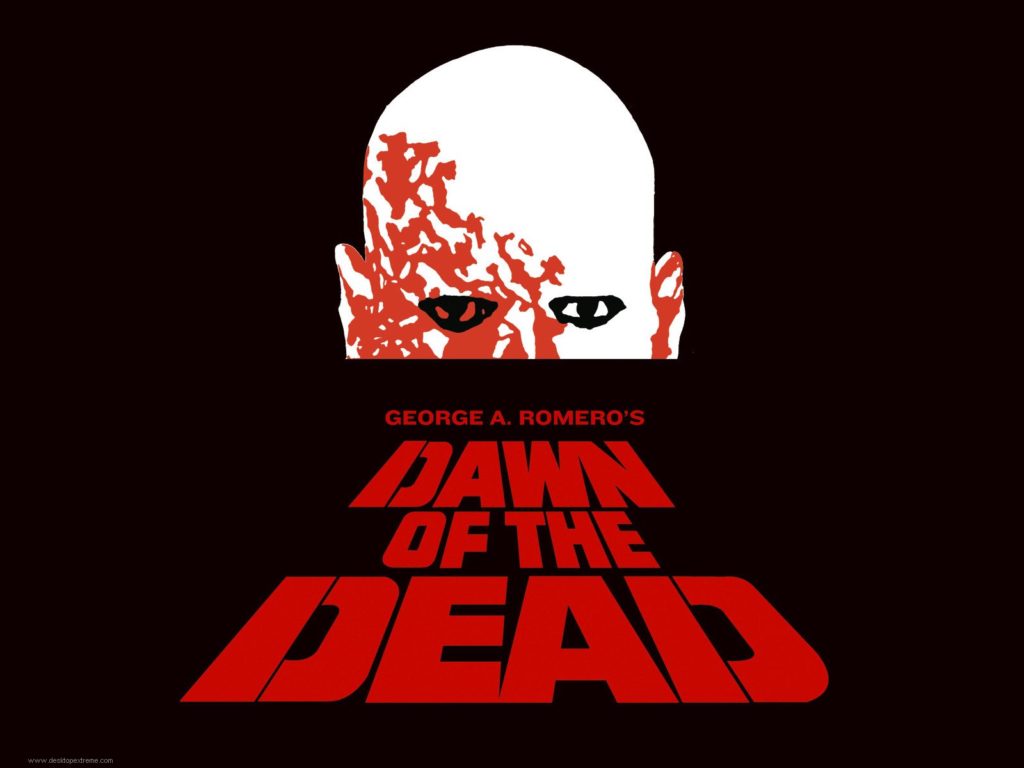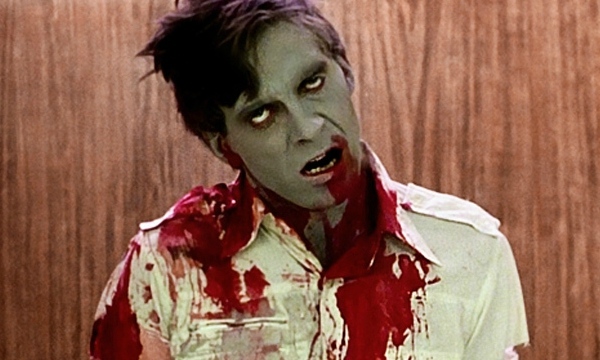3. Dawn Of The Dead (1978; dir. George Romero) – I know a lot of people might put Romero’s original Dawn of the Dead as number 1 on their list with good reasons, most of which I’d likely agree with. Romero took the magic formula he’d discovered with Night and upped the ante, broadened the scope. It turned most of the elements that made the first great up to 11. Yet, in re-watching it to write this entry I noticed something: everyone makes such a big deal about Romero’s cultural commentary, but it’s incredibly facile. Zombie in a shopping mall as a satire on modern day consumer culture? Okay, I get it, but he doesn’t really take that anywhere. That’s it. That’s all we get. Modern day consumers are mindless, roving masses…like zombies. Get it? It’s not really so much a commentary as a comment, more of a snarky wink. There’s a constant irony hovering over the narrative that the exact place he’s critiquing as mindless by putting zombies there is the same place you’d want to be in this situation like this, since it has all the shit you’d need to survive, but Romero doesn’t exactly plumb these depths either. In fact, it seems that all the “cultural commentary” here is solely on the surface, so why do I still count Dawn of the Dead so high among my favorite zombie movies of all time?
First off, I actually like all four of Dawn’s characters.
Unlike most of Day’s principle players, the Dawn crew aren’t caricatures, and liking the characters in a horror film is inextricably linked to caring whether they live or die. I’d even go so far as to say it’s the primary failing of the vast majority of horror films produced. Sure, if a director can make it work on other levels, he or she can still make a good movie, but I’d argue that without well-written characters it’s almost impossible to make a great one. Fran, the female lead, plays the role somewhere between Barbara of Night’s catatonic cowardice and Sarah of Day’s stone cold ballsy heroine, and this moderation makes her more interesting that both her of the Dead counterparts. She’s vulnerable, but not completely incapable of handling herself or dependent on the three men she’s traveling with, even insisting she learn to fly the helicopter in case something bad happens to her boyfriend Stephen (aka Flyboy).
The two others, Peter and Roger, former members of Philadelphia’s SWAT team, form a bond while storming a barricaded city building housing the dead and taking out a number of zombies that the building’s residents were refusing to turn over to authorities, and while it could have just been another parody of authority figures with guns acting macho, here we can tell that neither Peter nor Roger like having to do this. When they’re finished Roger asks, “Why did they [the building’s residents] keep them here?” to which Peter responds, “Because they still believe there’s respect in dying.” And this exchange is melancholy, poignant, a real moment shared between the characters, designed to let us know that though Peter and Roger are soldiers, they’re not bent on killing. They’re humans suffering real pain at an event beyond their understanding, and that amplifies the tension and makes it more upsetting when they’re assailed first by zombies and then by a gang of bikers invading the mall they’ve decided to hole up in.
Of course, this being Romero, caricatures are never entirely missing. As always, he has no love for rednecks and includes the obligatory “stupid white men who love their guns whooping it up by shooting anything that moves” scene. And let’s not forget that though the makeup and effects were taken up a notch in Day (the zombies here are just sort of gray-faced while the filmmakers there thought more about different states of decomposition and racial identity), there are still plenty of great zombie kills, including one getting his head cut off with the helicopter blade. Then there’s the score, a bit dated, but still effective in making us jump and bite out nails while the heroes take risks to ensure their survival, and last but not least, there’s what Romero does to the bikers…it kinda hurts to think about.
Overall, Romero was most effective in making the guts and gore staples serve the function of the story. With previous entries in my favorite zombie movie list, a lot of the allure is to see how inventive the filmmakers will get with the effects, how outlandish with the kills, and while I won’t try to convince you that Dawn is a genuinely emotional experience on par with any of the great Hollywood melodramas, as a zombie film, it does leave you hoping against hope, that as our two remaining survivors fly away at the end, there’s something out there for them. You’re left with the sense that you really want them to survive. And it’s not your everyday garden variety zombie flick that pull that off.


There are no comments yet